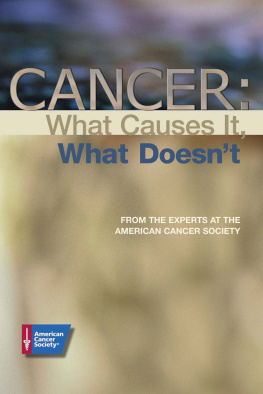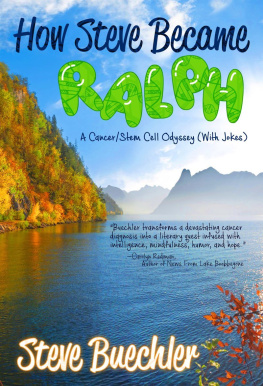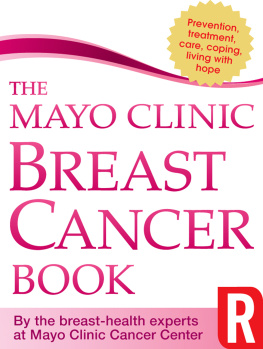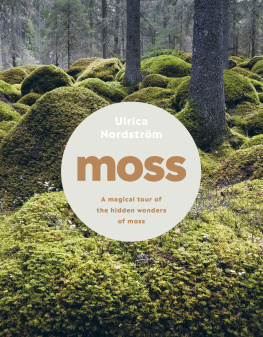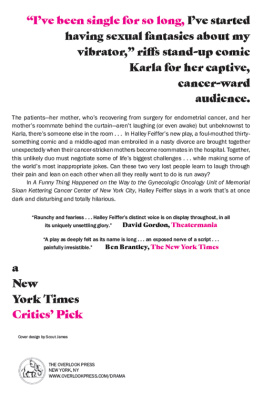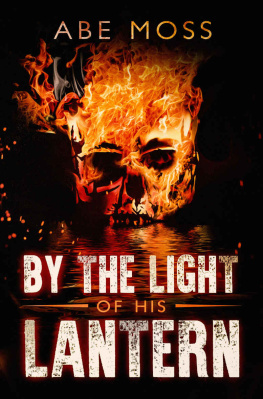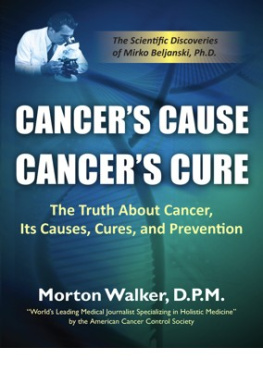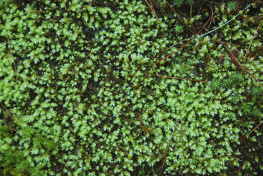Contents

Ralph W . Moss, PhD, has written ten books and made three film documentaries on can cer. He writes The Moss Reports, which are detailed reports on 22 common cancer diagnoses; the monthly newsletter, ADVANCES; and the War on Cancer column for the Townsend Letter. He was a founding advisor to the NIH Office of Alternative Medicine, is a board member of the Cancer Prevention Coalition, and advisor to Breast Cancer Action, Life Extension Foundation, and the RAND Corporation.
Moss wrote the first article on complementary and alternative medicine for the Encyclopedia Britannica yearbook and Courtroom Medicine: Cancer.
His writings have appeared in The Lancet, Journal of the National Cancer Institute, Journal of Clinical Oncology, Journal of the American Medical Association, New Scientist, Immunobiology, Pharmacological Research, Anticancer Research, Genetic Engineering News, Research in Complementary Medicine, Journal of Alternative and Complementary Medicine, Journal of Cancer Research and Therapeutics, and Integrative Cancer Therapies, for which he is Corresponding Editor. His op-ed Patents Over Patients appeared in the New York Times.
He has been a peer reviewer for Blood, Current Oncology, Tumor Biology, the Journal of Research in Medical Science, International Journal of Cancer, and the Czech Academy of Sciences. He has been an invited lecturer at Memorial Sloan-Kettering Cancer Center, Johns Hopkins University School of Medicine, Aspen Ideas Festival, Howard University, University of Arizona, Department of Energy, American Cancer Society, Penn State Hershey and many other medical centers. He led a seminar at the National Library of Medicine on his mentor, the Nobel laureate Albert Szent-Gyrgyi. Moss has received lifetime achievement awards from the International Clinical Hyperthermia Society, American College for Advancement in Medicine, Cancer Control Society, National Foundation for Alternative Medicine, Wellness Forum and Center for Advancement in Cancer Education. In 1998, he was made an honorary member of the German Society of Oncology, the first American so honored. He is a board member of the Italian Association for Research in Integrative Oncological Therapy, and has given the Coombs Lecture at the University of Calgary, Canada.
He is a standing director of the World Federation of Chinese Medicine Societies. In China, Moss has been honored with visiting professorships at Shanxi Province Anticancer Research Institute, ChangAn Hospital in Xian, Friendship Hospital in Guangzhou, and the Southern Medical University in Dongguan, China.
Moss has made investigative visits to hospitals and clinics in Austria, Bahamas, Canada, China, Czech Republic, Denmark, Germany, Great Britain, Holland, Israel, Italy, Honduras, Hungary, Russia, Switzerland, and most US states. He tours clinics around the US and the world looking for effective cancer treatments. Ralph Moss is the subject of Eric Merolas 2014 documentary film, Second Opinion.

Also by Ralph W. Moss:
The Cancer Syndrome
An Alternative Approach to Allergies
A Real Choice
Caring
The Cancer Industry
Questioning Chemotherapy
Herbs Against Cancer
Cancer Therapy
Antioxidants Against Cancer
Customized Cancer Treatment
Doctored Results
THE SUPPRESSION OF LAETRILE AT SLOAN-KETTERING INSTITUTE FOR CANCER RESEARCH
Ralph W. Moss
Equinox Press, Inc.,
Lemont, PA 16851
2014
Published by
EQUINOX PRESS, INC.
PO Box 1076
Lemont, PA 16851
800-980-1234 or 814-238-3367
Copyright 2014 by Ralph W. Moss
All Rights Reserved
All photographs 2014 by Ralph W. Moss
or are in the public domain
Library of Congress Cataloging-in-Publication Data
Moss, Ralph W.
Doctored results : the suppression of laetrile at Sloan-Kettering Institute for Cancer Research / Ralph W. Moss, PhD. -- First edition.
pages cm
Includes bibliographical references.
ISBN 978-1-881025-52-8 (alk. paper)
1. Laetrile. 2. Cancer--Chemotherapy--Research--United States. 3. Drugs--Research--Corrupt practices--United States. 4. Pharmaceutical policy--United States. 5. Memorial Sloan-Kettering Cancer Center. 6. United States. Food and Drug Administration. I. Title.
RC271.L3M67 2014
616.994061--dc23
2013051222
Manufactured in the United States of America

Disclaimer
The information provided in this book is for general educational purposes only. Neither the author nor the publisher makes warranties, expressed or implied, that this information is complete nor do they warrant the fitness of this information for any particular purpose. This information is not intended as medical advice, and they disclaim any liability resulting from its use. Neither the author nor the publisher advocates any treatment modality, including any that are discussed in this book. Each reader is strongly urged to consult qualified professional help for medical problems, including board-certified medical oncologists, when appropriate. Decisions about treatment facilities should be made on the basis of current capabilities, and not on the basis of past deeds or misdeeds.
SKI Paper
In this book, the final SKI paper on laetrile refers to Stock CC, Martin DS, Sugiura K, et al. Antitumor tests of amygdalin in spontaneous animal tumor systems. Journal of Surgical Oncology. 1978;10:89123. When a page number is given in parentheses in the text, it refers to this paper. Readers can obtain a copy at medical libraries, through interlibrary loan, via an institutional online subscription or by paying the publisher, Wiley, $35.00 for personal use, at www.onlinelibrary.wiley.com
Acknowledgements
The author would like to thank the following for commenting on various drafts of this book:
Bharat B. Aggarwal, PhD, Houston, TX; Tibor Bakacs, MD, PhD, DSc, Budapest, Hungary; Keith Block, MD, Skokie, IL; Penny Block, PhD, Skokie, IL; Charlotte Gyllenhaal, PhD, Chicago, IL; Joseph Mahoney, PhD, Reading, PA; Jay Mehrishi, PhD, Cambridge, UK; Eric Merola, Santa Monica, CA; Robert A. Nagourney, MD, Long Beach, CA; Peter Pedersen, PhD, Baltimore, MD; Young Ko, PhD, Baltimore, MD; Michael Schachter, MD, Suffern, NY.
Personal History
I began my career as a medical writer in 1974. Like many in my profession, I didnt train to be a researcher, much less to write about scientific advances for the general public. For the previous dozen years, in fact, I had been immersed in the study of ancient civilizations. Then, within a month of receiving my doctorate in Classics from Stanford University, I went to work at Memorial Sloan-Kettering Cancer Center (MSKCC) in New York City writing articles for the public on cancer.
In college my main academic interest was poetry and I went into Classics to read the ancient Greek poets, especially Homer. It was no coincidence that my girlfriend (later my wife), Martha, was already studying ancient Greek at Hunter College. As an undergraduate at Washington Square College of New York University I became excited about the prospects of teaching Classics as a profession.
Next page

